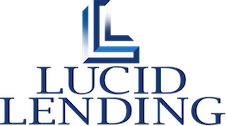Buying a home is an exciting and significant milestone in life, and it often begins with securing a mortgage. North Carolina offers a diverse real estate market, from the bustling urban areas of Charlotte and Raleigh to the serene coastal communities and picturesque mountain towns. To help you navigate the mortgage process in North Carolina, here’s a comprehensive guide:
1. Assess Your Financial Situation
Before you start house hunting, evaluate your financial status to determine how much you can afford. Consider factors like:
- Income: Calculate your monthly income, including salary, bonuses, and any additional sources of income.
- Expenses: List all your monthly expenses, including utilities, groceries, insurance, and existing debts.
- Credit Score: Obtain your credit report and score. Lenders use this to assess your creditworthiness. A higher score generally results in better loan terms.
- Down Payment: Determine how much you can put down as a down payment. In North Carolina, you typically need at least 3-5% of the home’s purchase price.
2. Mortgage Types
There are various mortgage types available in North Carolina:
- Fixed-Rate Mortgage: Offers a stable interest rate throughout the loan term, usually 15, 20, or 30 years.
- Adjustable-Rate Mortgage (ARM): Provides a lower initial interest rate that can adjust periodically after an initial fixed period.
- FHA Loans: Insured by the Federal Housing Administration, these loans often require lower down payments and have more flexible qualification criteria.
- VA Loans: Available to eligible veterans and active-duty military personnel with favorable terms and no down payment requirement.
- USDA Loans: Designed for rural and suburban homebuyers who meet certain income and location criteria.
3. Find a Lender
Research and compare mortgage lenders in North Carolina. Consider factors such as interest rates, fees, customer service, and reputation. Local banks, credit unions, and online lenders are all options.
4. Get Pre-Approved
Getting pre-approved for a mortgage gives you a better understanding of your budget and helps you compete with other buyers. Submit necessary documents, including income statements, tax returns, and credit history, to your chosen lender.
5. House Hunting
With your pre-approval in hand, start searching for homes within your budget. Work with a local real estate agent who can help you navigate the North Carolina housing market.
6. Apply for a Mortgage
Once you find the right home, your lender will guide you through the application process. Expect to provide detailed financial information and documentation.
7. Home Inspection and Appraisal
Before finalizing the purchase, it’s essential to have a professional home inspection and appraisal. These ensure the property’s condition and value meet your expectations.
8. Closing Costs
Be prepared for closing costs, which include fees for appraisals, title searches, insurance, and more. In North Carolina, closing costs can typically range from 2% to 5% of the home’s purchase price.
9. Closing Day
On the day of closing, review and sign all necessary documents, pay any remaining fees, and receive the keys to your new home.
10. Post-Purchase Considerations
After purchasing your home, remember to:
- Set up homeowners insurance to protect your investment. (This needs to be with Line 7, Inspection, Appraisal, and Homeowners Insurance)
- Budget for property taxes and homeowners association fees if applicable.
- Continue monitoring your credit and finances to maintain good mortgage terms.
Conclusion
Purchasing a home in North Carolina can be a fulfilling journey with the right preparation and knowledge. Remember to conduct thorough research, work with experienced professionals, and stay financially responsible throughout the process. Your dream home in North Carolina is within reach with the proper planning and guidance.

